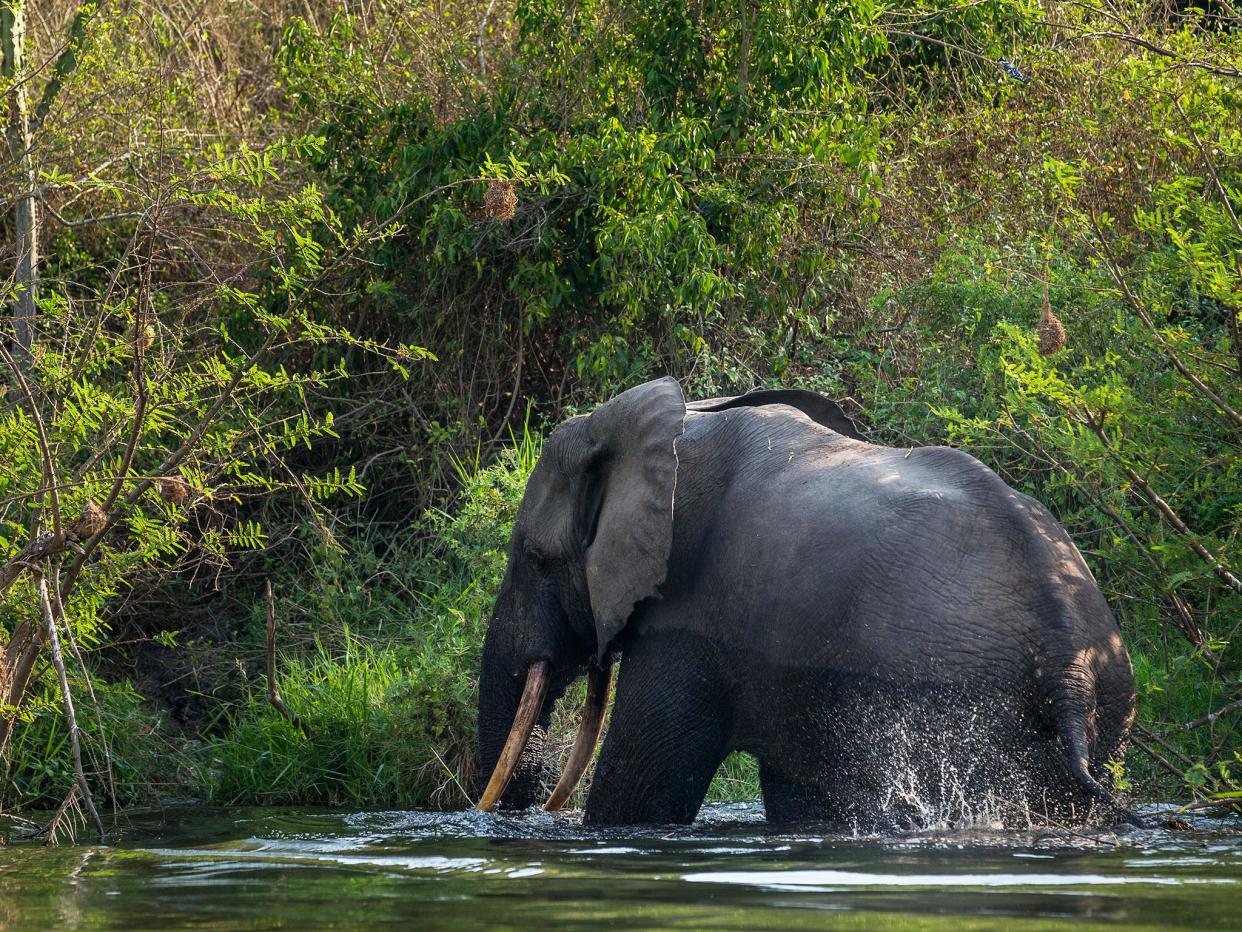'WWF-funded' anti-poaching patrols accused of committing atrocities against locals to protect African wildlife

Anti-poaching patrols in central Africa have been accused of committing atrocities against local tribes in order to protect wildlife.
A report by Survival International, a UK-based group campaigning for tribal peoples' rights, alleges that wildlife guards funded by the WWF (World Wide Fund for Nature) and other conservation organisations "harass, beat, torture and kill" people of the Baka, or Bayaka, tribes.
WWF has rejected the charges in the report and said it was "shocked and saddened to hear of the violence and abuse of indigenous people."
Mike Hurran, a researcher at Survival International, told The Independent the report summarises "the history of human rights abuse that happens in the name of conservation in" the Congo Basin between Cameroon, the Republic of Congo and the Central African Republic.
Mr Hurran said: "When you think of conservation, you think of compassion, justice, progressive values, protecting the environment. But I've met so many people for whom conservation means nothing like that at all.
"It means hunger, it means violence, it means the horrible idea that it doesn't matter whether your child lives or dies so long as some wildlife are protected."
The report, based on interviews with dozens of people living in the Congo Basin, contains accusations that national parks and other protected areas were imposed on the indigenous tribes without their consent.
It said the Baka people had been accused of poaching when they hunt to feed their families and subject to harassment, including having hot wax poured onto exposed skin, beatings and maiming with red-hot machetes.
"The harrowing accounts we have gathered here almost certainly represent a small fraction of the real number of such cases – the vast majority go undocumented," the report said.
In one account from July last year, one Baka man told researchers: “Even if a woman is pregnant, they beat her. Even if she has a child with her, they beat her. God created lots of things in the forest that our parents left to us. Now they are forbidden to us."
Another said guards searched his house "without finding anything." He said they then took his machete from under the bed and said: "We are going to slit your throat because you’re hiding poachers here." The man added: "I was on the bed with my wife and children. I only had my underwear on. They dragged me outside and made me get on the ground, to kill me."
WWF has been operating in the region since 1991 and backed the creation of the Lobeke National Park to protect elephants, primates and leopards in 1999, which the report alleges led to the illegal eviction of several Baka tribes.
The report went on to say anti-poachers "supported by WWF routinely raze entire forest camps to the ground, both inside and outside national parks.
"The violence they visit upon the Baka and their neighbours knows no bounds: victims have included pregnant women, the elderly and infirm — even small children. WWF has been aware of the persecution of the Baka by the guards it supports for over 15 years.”
He said he hoped the report would "encourage these organisations" and their supporters "to sit up and take notice" of the allegations of human rights abuses.
A spokesperson for WWF said: “We are shocked and saddened to hear of the violence and abuse of indigenous people. It is totally unacceptable.
"Protecting our planet is as much about respecting the rights of the people that depend on it as it is about protecting wildlife, and we do this by helping deliver access to education, healthcare and livelihoods to local communities through conservation projects.
"Contrary to reports, WWF does not employ eco-guards, in fact we have repeatedly asked Survival International to share information that could help us to push the authorities who employ those accused to act. Despite our many requests Survival International has refused to share this information.”

 Yahoo News
Yahoo News 
